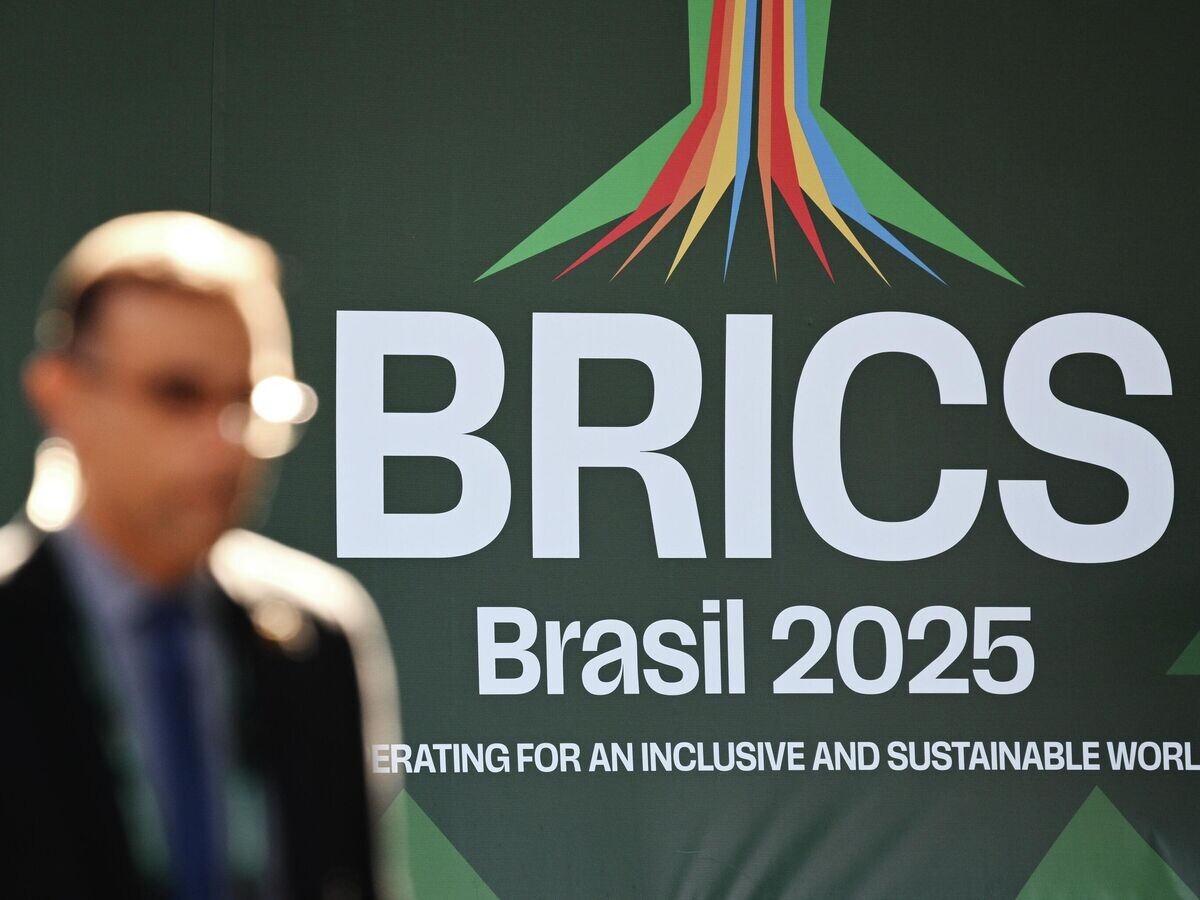Exclusive Interview
In 2025, Brazil assumed the presidency of the BRICS group at a pivotal moment marked by evolving geopolitical tensions and pressing global challenges. As one of the largest emerging economies, Brazil’s leadership in this multilateral bloc offers a unique opportunity to advance the interests of the Global South, promote reforms in international governance, and address critical issues such as climate change, economic development, and international security.
To gain deeper insights into Brazil’s strategic objectives during its BRICS presidency, we spoke with Ana Livia Araujo Esteves, PhD in Political Sciences, Lecturer at the Department of International Regional Studies at HSE University. In this interview, Ana Livia Esteves shares her perspectives on Brazil’s foreign policy priorities, the internal dynamics of BRICS, and the potential impact of Brazil’s leadership on the future of the organization.
The interview was conducted by Yuriy Shakhov – Editor of the Information, Publications & Digital Communications Program.
Yuriy Shakhov: What is the strategic and foreign policy value of BRICS for Brazil today? To what extent does the presidency in 2025 serve as a tool for enhancing Brazil’s global authority, and what role does BRICS occupy in its foreign policy doctrine compared to, for example, regional formats or bilateral cooperation with the EU and the USA?
Ana LiviaEsteves: The BRICS forum allows Brazil to advance its main foreign policy objectives: economic development and international political autonomy. To achieve these objectives, Brazil seeks international support in access to high technology and for the reform of global governance. The BRICS can be particularly helpful in both of these directives. Of course, each Brazilian government will modulate the emphasis put on BRICS, depending on the stress it will put on South-South cooperation, as opposed to North-South cooperation. But, so far, no Brazilian government has been blind to the potential that the BRICS represents to Brazilian economic development and international political autonomy. The Brazilian domestic foreign policy debate can be divided between groups that believe that North-South cooperation will be conducive of economic development, while others believe South-South cooperation is the answer to overcome the structural limitations imposed by the globalized economy. In practice, both directives coexist, and Brazil maintains close ties with the European Union and the US to advance agendas such as trade liberalization and investments. On the other hand, within the BRICS, Brazil can promote a more ambitious agendas, aiming not only at guaranteeing short to medium term gains, but long-term upgrades in its international status, by advancing the reform of the UN Security Council and of the Bretton Woods Institutions.
Yuriy Shakhov: What are the key objectives of Brazil’s BRICS presidency? Is it primarily about advancing the priorities of the Global South, institutionalizing the bloc, reforming international institutions, or strengthening the national image? What does Brazil seek to gain from BRICS – politically, economically, and institutionally?
Ana LiviaEsteves: The Brazilian presidency of the BRICS this year was permeated with controversies. While the results were acceptable, as we will discuss further, the process was somewhat turbulent. First, the Brazilian decision to promote the Heads of State’s Summit in the first semester (July), as opposed to the second semester, raised some eyebrows. Brazil will host the UN Climate Summit in the second semester, and claimed that will need time to focus on that. Despite the fact that some BRICS meetings will be held in the second semester of 2025, the Brazilian presidency restricted the timeframe of the BRICS activities, posing yet another challenge to an already busy schedule. Second, the adoption of the “democracies vs autocracies” approach by some groups within the Ministry of Foreign Affairs of Brazil (Itamaraty), up to the point of raising the possibility of reviving the IBSA Forum (India, Brazil, South Africa) in detriment of the BRICS, also brought discomfort in the beginning of the Brazilian presidency of the BRICS of 2025.
However, the personal engagement of President Lula in the BRICS forum led Itamaraty to rise to the challenge, roll up its sleeves and organize a satisfactory BRICS Summit in Rio. To achieve that, Brazil nominated a new sherpa for the BRICS, Ambassador Mauricio Lyrio, who brought in the successful experience of the Brazilian presidency of the G20 in 2024. Under his leadership, Brazil chose the following themes to be in the center of the BRICS agenda: Reform of Financial Institutions, Institutionalization of the BRICS, Climate Change, Health, Artificial Intelligence.
The objectives of Brazil with each of these issues are the following: the Reform of Financial Institutions is a key issue for Brazil, a country that would like to access international credit to finance its development. In the past, Brazil had complicated experiences with the IMF. For that reason, the country is very careful in its engagement with Bretton Woods institutions, and would like to have more reliable international financial partners. Coordination to advance the reform of international institutions is in the DNA of the BRICS, that was originated to deal with this particular issue. The BRICS first success story is related to this agenda, when it achieved partial success of the IMF reforms of 2014. Brazil wants to rekindle and reinforce this original vocation of the BRICS forum.
The institutionalization of the BRICS was another agenda backed by Brazil in 2025, considering its controversial relation with the expansion of the group. The expansion was not fully endorsed by the Itamaraty but Lula’s personal support to the initiative led the Brazilian diplomats to welcome new permanent members.
In the context of the Johannesburg Summit in 2023, Brazil has requested new BRICS members to endorse its candidacy to a permanent seat at the Security Council. The Johannesburg final declaration was considered a victory by the Itamaraty, for it refers to Brazil as a candidate endorsed by the BRICS. However, a year later, in 2024, some of the new members expressed opposition to naming specific countries as candidates to the UN Security Council, preferring a less specific wording, focusing on regions, and not particular countries. This was a blow to the Brazilian diplomacy and strongly affected Brazil’s enthusiasm with the BRICS forum. The Rio de Janeiro Declaration of 2025 brings back a direct reference of Brazil, although as a country endorsed by current Security Council members Russia and China, and not by the BRICS as a group. This can be considered a partial solution and an attempt to please the Brazilians, clearly dissatisfied with this situation. On the other hand, the goal established by the Brazilian presidency to update the Terms of Reference and advance the institutionalization of the BRICS was not fully met. Apparently, six months was not enough to complete this arduous task.
Climate change was a priority for Brazil, due to the preparations of the UN Climate Summit in Belém do Pará, in November 2025. Lula does not want to repeat the frustration of the UN Climate Baku Summit of 2024 and instructed its diplomacy to guarantee concrete results in Belém. In this context, the Itamaraty sought to establish a climate consensus in Rio de Janeiro and kickstart Belém with a solid support from its BRICS partners.
Finally, the focus on the health agenda represents the attempt by Brazil and sherpa Mauricio Lyrio to repeat the Itamaraty’s strategy in its G20 presidency in 2024. In order to avoid the difficulties imposed by the charged geopolitical climate, Brazil focused on eradication of hunger as a common objective in the G20. The strategy was successful and Brazil launched the Global Alliance Against Hunger, a new organization that is fully operational under the auspices of the FAO. The Health agenda within the BRICS (focusing on Socially Determined Diseases (SDD) to bring it closer to Global South issues) was supposed to drive a new common initiative and provide the Brazilian presidency with a concrete result. (Brazil often notes its capacity to launch concrete initiatives during its presidencies of the BRICS, citing the New Development Bank as an example). However, this objective seems to have been partially achieved. While the BRICS Health Initiative is referenced in the Final Declaration, further steps have to be taken for it to be formally launched. Again, six months may not have been enough for launching a fully operational initiative.
Yuriy Shakhov: How does Brazil perceive the fact that the leaders of two key BRICS countries – Russia and China – did not attend the summit? Can this be seen as a signal regarding the internal balance of power within the group? How did it affect the planning of the summit and the work on the final declaration?”
Ana LiviaEsteves: While the absence of Russian President Vladimir Putin was predictable and foreign minister Lavrov is widely recognized as having the experience and credentials for representing Russia in the BRICS, as he did in 2023, the absence of the Chinese President Xi Jinping caught most Brazilian experts off guard. It is true that Lula da Silva and Xi Jinping have met bilaterally twice in 2025 – during their visit to Moscow for the 80th anniversary of the Victory in the Patriotic War and during Lula’s visit to Beijing in mid-May. However, the BRICS forum is a multilateral initiative and should not be confused with bilateral relations between Brazil and China. The fact that President Xi has not missed any BRICS meeting in the past added to the discomfort of his absence. The absence of other BRICS leaders in the Summit was also deeply felt.
In my personal opinion, the decision to shorten the BRICS activities to six months, the limited financing provided by Brazil to its BRICS activities, and the distancing that some political groups within Brazil have displayed vis-à-vis the BRICS forum has taken its toll. While in the last weeks significant advances were made, Brazil did not engage in a flawless presidency, nor has displayed its best international leadership skills in 2025. In its attempt to maintain good relations with the West and the Global South at the same time, Brazilian diplomacy has not rarely come to a paralysis. In order not to be labelled as anti-Western or upset the leadership at the White House, Brazil has been excessively cautious in its BRICS presidency of 2025, in my personal opinion. These efforts did not come to fruition, as the Trump administration imposed punitive measures against Brazil anyway, adopting an unprecedented 50% tariff against the country’s exports to the US right after the closure of the BRICS Summit. As a result, Brazil ended up without a noteworthy BRICS presidency and with open hostility by the White House, showing that the extremely cautious approach has not been delivering the expected results.
Yuriy Shakhov: What priorities has Brazil set in the field of international security and arms control during its BRICS presidency? What role does it play in initiatives related to the prevention of the militarization of outer space, regulation of AI, cyber threats, and confidence-building measures in the military domain?”
Ana LiviaEsteves: By appointing Ambassador Mauricio Lyrio as the Brazilian sherpa of the BRICS in 2025 and, to that effect, as the leading coordinator of the Rio Summit, the Itamaraty wanted to repeat the success of the Brazilian presidency of the G20. In the G20, Brazil was able not only to maintain the US, Russia and China in the same negotiating table, but also convinced the parties to launch a new joint initiative, namely the Global Alliance against Hunger (organization fully operational under the auspices of the FAO). The idea was to repeat this formula in the BRICS in 2025. And a key element for this strategy is the compartmentalization of geopolitical issues. This means discussing military and security issues only in international organizations dedicated to security issues, such as the UN Security Council. The objective is not to allow geopolitics to hijack international organizations dedicated to economic development, health, climate and other issues relevant to the Global South. Therefore, issues such as military cooperation were not the focus of the Brazilian BRICS presidency. However, issues such as the peaceful use of space and the support for the draft of the Treaty on the Prevention of the Placement of Weapons in Outer Space and the Threat of use of force against Outer Space Objects were duly mentioned in the BRICS Final declaration.
An issue that is particularly relevant for Brazilian Foreign Policy is the condemnation of the Israeli-US attacks in Iranian nuclear facilities. Despite the inherent risks imposed by such actions, Brazil cannot accept the criminalization of civilian nuclear programs. Brazil emphasizes the right of non-nuclear countries to engage in peaceful uses of nuclear technology, under IAEA inspections. The dubious precedent imposed by the Israeli-US attacks in Iran were met with serious preoccupation by Brazil, that fears a gradual and irreversible delegitimization of the international non-proliferation regime. This issue was stressed by the BRICS in the Rio de Janeiro Declaration. However, as the Brazilian mantra goes, the precedence should be given to the specialized international organizations. Therefore, while the BRICS is the best place for Global South countries to coordinate their positions, further action and debate should be held in the competent international fora.
Keywords: BRICS; Brazil
BRICS
E16/SHAH – 25/07/10




